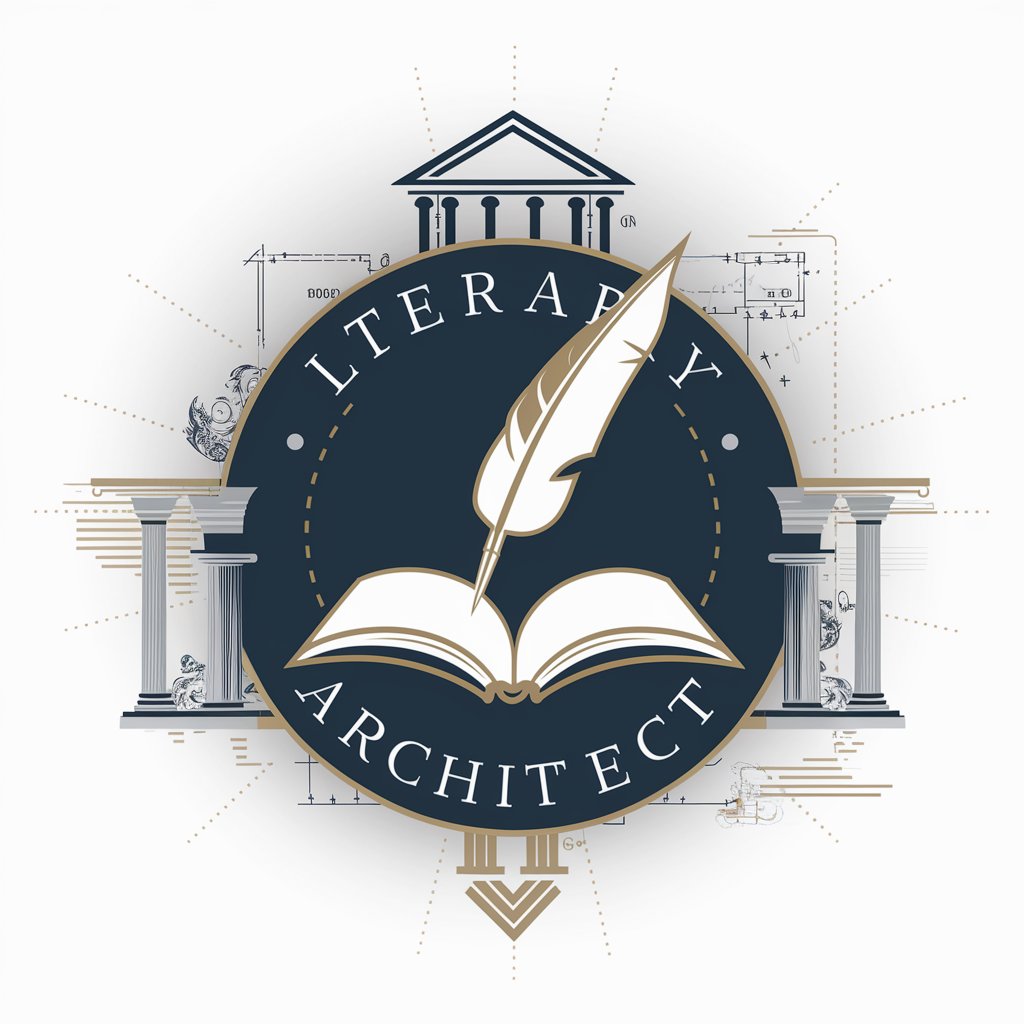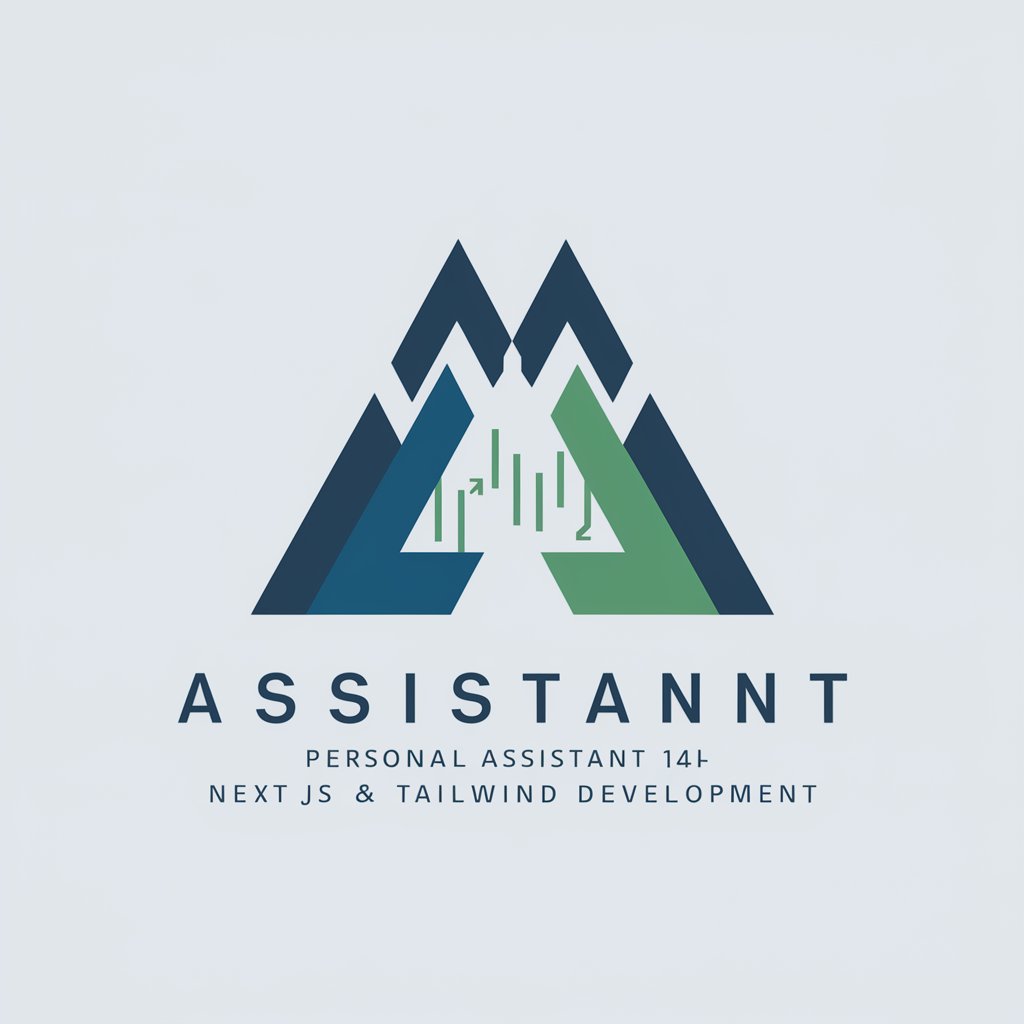Literary Architect - AI-Powered Writing Aid

Hey there! Ready to craft some amazing stories together?
Empowering Your Words with AI
Describe a character who discovers a hidden talent that changes their life.
Create a world where technology and magic coexist, but only a few can harness both.
Imagine a society where dreams are controlled by a central organization. What happens when someone starts dreaming freely?
Write about a time traveler who can only visit the past and must change a single event to save the future.
Get Embed Code
Welcome to Literary Architect
Literary Architect is a specialized AI designed to assist individuals in the realms of creative writing, storytelling, and literary creation. It's crafted to provide in-depth support across various stages of the writing process, from initial idea generation to plot development, character creation, world-building, and refining writing styles. Unlike generic AI models that offer broad information on a wide range of topics, Literary Architect focuses specifically on the literary domain, ensuring its responses are tailored to the unique needs of writers and creators. For instance, if you're struggling to flesh out a character in your novel, Literary Architect can guide you through the process of creating a complex backstory, defining motivations, and designing character arcs. Similarly, if you're at the initial stages of a story and need inspiration, it can help generate ideas or suggest plot twists to make your narrative more engaging. Powered by ChatGPT-4o。

Core Functions of Literary Architect
Plot Development
Example
Assisting in the development of a novel's main storyline, including creating suspenseful plot twists.
Scenario
A writer is unsure how to proceed after establishing the basic premise of their story. Literary Architect can suggest several plot developments that intensify the conflict and propel the narrative forward.
Character Creation
Example
Guiding the creation of multi-dimensional characters with distinct personalities, backstories, and growth arcs.
Scenario
An author wants to create a relatable protagonist for their young adult novel. Literary Architect provides advice on incorporating relatable struggles, defining character traits, and ensuring the character evolves throughout the story.
World-Building
Example
Offering insights on crafting detailed, immersive settings that enhance the narrative.
Scenario
A fantasy writer is creating a novel set in an entirely new universe but struggles with making it believable. Literary Architect suggests methods to establish the world's rules, culture, geography, and history, making the setting a character in its own right.
Writing Style Refinement
Example
Providing suggestions to improve the writer's style, making the narrative more engaging and readable.
Scenario
A writer receives feedback that their story's pacing is too slow. Literary Architect offers strategies to tighten the narrative, vary sentence structure, and enhance descriptions to captivate readers.
Who Can Benefit from Literary Architect?
Aspiring Authors
Individuals dreaming of writing their first book or story but unsure where to start will find Literary Architect invaluable for idea generation, structure, and developing a writing habit.
Experienced Writers
Seasoned authors facing writer's block, seeking fresh ideas, or wanting to refine their craft can utilize Literary Architect for advanced storytelling techniques and stylistic advice.
Educators and Students
Teachers and students in creative writing courses can use Literary Architect as a supplementary tool for teaching and learning storytelling elements, enhancing classroom discussions and assignments.
Screenwriters and Playwrights
Creators in the visual storytelling domain can adapt Literary Architect's advice on plot and character development to scriptwriting, using its insights to create compelling narratives for the screen or stage.

How to Use Literary Architect
Start with a Free Trial
Access yeschat.ai for a no-cost trial without any login required, and no necessity for ChatGPT Plus.
Define Your Project
Outline the type of writing project you're working on, such as a novel, essay, or screenplay, to focus the AI's assistance.
Explore Features
Utilize features like plot development, character creation, and style enhancement tools based on your project’s needs.
Interact with the AI
Ask specific questions or provide detailed descriptions to get customized advice and creative suggestions from the AI.
Review and Refine
Use the feedback and output from the AI to refine your work iteratively, ensuring alignment with your creative vision.
Try other advanced and practical GPTs
Eco-Tourism Guide
Navigate Nature Responsibly with AI

Magic Tourism Guide
Magically Transforming Tourism

Farmer's Crystal Ball
Empowering Farmers with AI-Driven Forecasts

Image Builder
Bringing Your Ideas to Life with AI

Financial Advisor GPT
Empower Your Finances with AI

NextGen Styler
AI-Powered Next.js Development Assistant

Analojik Düşünme
Making Complex Concepts Clearer

WhiskyPeaty
Discover the Spirit of Scotland

Augury Bird Oracle
Divine your future with AI-powered Roman augury.

Star Augur
Unlock cosmic insights with AI

HPC Expert
Optimizing HPC, Powered by AI

Small Talk Consultant
Perfecting Small Talk with AI Assistance

Frequently Asked Questions about Literary Architect
What types of writing can Literary Architect help with?
Literary Architect is versatile, designed to assist with various forms of writing including novels, scripts, academic essays, and more. It helps with plot structuring, character development, and enhancing narrative style.
Can I use Literary Architect for academic purposes?
Yes, this tool is excellent for academic writing, helping to structure arguments, refine thesis statements, and ensure logical coherence throughout your essays and research papers.
Is Literary Architect suitable for beginner writers?
Absolutely! It's tailored to support both new and experienced writers by providing step-by-step guidance and creative input, making it easier to start and complete writing projects.
How does Literary Architect enhance creativity?
The tool offers creative prompts, suggests narrative possibilities, and provides feedback on your writing style, helping to expand your creative horizons and refine your storytelling.
Does Literary Architect support screenplay writing?
Yes, it offers specific assistance for screenplays, including formatting advice, dialogue enhancement, and plot pacing, catering to the unique needs of scriptwriting.
